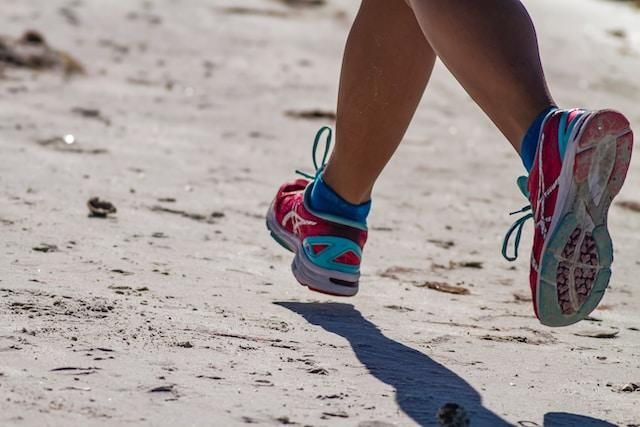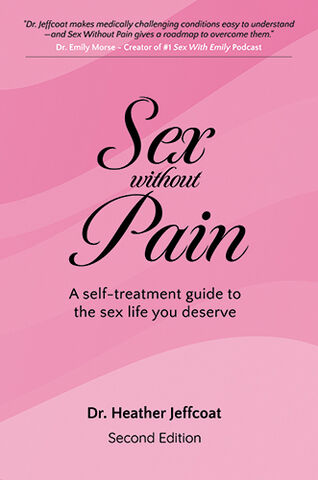
The Femina Physical Therapy Blog
Featuring original articles by our staff about current events and trends
Explore our insightful blog articles on pelvic health, where we delve into essential topics that empower and educate. From understanding pelvic floor disorders to strategies for conquering infertility, our content is designed for those seeking knowledge and support. We discuss the latest research, expert advice, and practical tips to enhance your well-being and foster a deeper connection to your body.
Featured From the Blog:
Running Mechanics and Pelvic Floor Health: The Impact of Footwear

Did You Know That Proper Footwear Can Improve Your Running Mechanics and Pelvic Floor Health?
How Do My Feet Impact My Pelvic Floor When I Run?
If you are a runner, you tend to look for ways to improve your running. If you’re thinking about starting up or returning to running, it can feel intimidating particularly if you have any symptoms related to pelvic floor dysfunction. This only complicates an exercise that, on the surface, seems fairly straight forward. There are some studies that have looked at how your feet can play a part in your pelvic floor muscle function while you run. And if you are looking to return to running postpartum, read on and also check out this article by one of our pelvic floor physical therapists.
Read more: Running Mechanics and Pelvic Floor Health: The Impact of...
Vulvovaginal Moisturizers: Who Needs One & Choosing the Right One

Choosing the Right Vulvovaginal Moisturizer
Assuming you need one, make sure it's got the right ingredient list
There are many reasons why those born with female anatomy may require the use of a vulvovaginal moisturizer throughout their lifetime. As you age, the vaginal and vulvar tissues tend to become drier and less elastic. This change is typically seen around the time one goes through menopause due to the drop in estrogen that occurs. The vulvovaginal tissues are very sensitive to hormonal changes and estrogen is the hormone that controls vaginal lubrication, as well as tissue elasticity and thickness.
Read more: Vulvovaginal Moisturizers: Who Needs One & Choosing the...
Lightning Crotch in Pregnancy: How You Can Start Recovering from SPD

What is symphysis pubis dysfunction (Lightning Crotch)?
Symphysis pubis dysfunction (SPD), also known as pubic symphysis dysfunction, anterior pelvic girdle pain, or lightning crotch, is a common musculoskeletal condition that is experienced by pregnant women and can vary from minor discomfort to severely debilitating pain. It is typically characterized by discomfort in the front pelvic area that can radiate to the inner thighs and perineum (think where your pubic bone is).
Read more: Lightning Crotch in Pregnancy: How You Can Start...
- Details
- Written by: Staff
- 7703 Views

What studies say about returning to running as postpartum exercise
Most of the therapists in our office are moms, and we intimately understand wanting to get back to exercise after delivery. Caution should be taken when returning to running postpartum - we see this clinically and research also shows postpartum movement strategy changes that can increase your risk of injury.
A recent pilot study by Provenzano et al., 2019 compared the biomechanical changes of runners pre-pregnancy (or <14 weeks gestation and postpartum). They found at six weeks postpartum subjects had decreased trunk and pelvic rotation, decreased running speed, with increased step width and stance time compared to pre pregnancy measurements. They also found decreased motion in the hips with increased motion at the knee as a compensation.
- Details
- Written by: Staff
- 19005 Views

Laxity in Pregnancy is what may be causing you those aches and pains
The Role of the Relaxin Hormone
As discussed previously on the blog, pregnant people undergo some major changes in their bodies, including producing different hormones that play various roles during pregnancy. One hormone that affects the musculoskeletal system in a pregnant person’s body is called relaxin.
Relaxin is a hormone produced by the corpus luteum (an endocrine gland made in the ovary when a follicle has matured and released an egg during ovulation) and the placenta (an organ developed in the uterus during pregnancy that provides oxygen and nutrients to your baby). Relaxin inhibits uterine activity and helps relax the pelvic joints so your hips can widen in preparation for birth. Relaxin peaks during the first trimester. However, relaxin can also contribute to laxity in other areas of the body during pregnancy, not just the pelvis.
Read more: Joint Laxity and Pregnancy | What is it and What can you...
- Details
- Written by: Heather Jeffcoat, DPT
- 24919 Views

There really is an app for everything… even pelvic floor exercises!
And research proves supervised pelvic floor home exercise programs can reduce treatment time and result in significant improvement over in-office therapy alone.
So why don’t all my patients have pelvic floor apps? Especially at the beginning of treatment, those exercises can be difficult enough to squeeze into a daily schedule without the added anxiety of scrolling through hundreds of options to find an affordable and reliable one; and no one wants to base sensitive healthcare decisions on anonymous user reviews.
Wouldn’t it be great if a medical expert could cut through all the clutter?
Read more: There’s An App For That? Medical Pros Rank Top SmartPhone...
- Details
- Written by: Staff
- 7994 Views

Endometriosis Affects 1 in 10 Women of Reproductive Age
And yet the delay in diagnosis hovers around 8.5 years (Barbieri, 2017; Ballard, 2006), meaning that, on average a woman will experience 8.6 years of symptoms and disease progression before they are diagnosed with the disease.
What is Endometriosis?
Endometriosis is a condition where endometrial-like tissue grows outside of the uterus (endometrial tissue is tissue that usually grows inside of the uterus and sheds each month). The most common area for it to grow is in the abdominal cavity, where it can implant on the surface of other structures including the ovaries, bladder, rectum, and along the walls of the abdomen and pelvis.
- Details
- Written by: Heather Jeffcoat, DPT
- 5063 Views

“The cure is worse than the disease."
We’ve all heard the cautionary proverb; but to someone desperate for a cure, it’s all too easy to ignore.
Sadly, that’s been the outcome of too many vaginal mesh surgery cases. It’s a popular treatment for stress urinary incontinence, among other conditions; but many of these patients have paid a heavy price. Increasingly, women are opting to have the mesh surgically removed; and some of them are further devastated to learn that one of the most common complications – pelvic pain – can persist long after the mesh is gone.
Read more: Is Vaginal Mesh Surgery Right For You? Don't Be So Sure.
- Details
- Written by: Staff
- 18854 Views

Pudendal Neuralgia (PN) is a condition that can cause chronic pain or numbness along the course of the pudendal nerve, which is the nerve that innervates the pelvic floor.
What is the pudendal nerve and what does it do?
The pudendal nerve, like other peripheral nerves in your body, is how your brain “connects” with the muscles and tissues of the body- sending and receiving messages between the brain and body like movement and sensation. When nerves get compressed, irritated, or constricted, problems can occur in this “message chain” and you might feel things like pain, numbness, tingling.
Read more: What is Pudendal Neuralgia and How Can Pelvic Floor...
- Details
- Written by: Staff
- 21369 Views

Persistent Genital Arousal Disorder (PGAD) is a condition that is poorly understood.
Persistent Genital Arousal Disorder is a rare disorder most commonly seen in those with female anatomy and is characterized persistent sensations of genital arousal in the absence of sexual desire or stimulation. These sensations typically stay after orgasm and are intrusive, unwanted, and can negatively affect quality of life.
The diagnosis itself is not well known among healthcare practitioners yet alone the general public. Those who experience its symptoms can be hesitant to talk about it with their healthcare practitioners even though it may be affecting their quality of life.
Read more: Persistent Genital Arousal Disorder (PGAD) | What is it...
- Details
- Written by: Staff
- 8538 Views

September is Healthy Aging Month! In recognition, this blog will talk about Menopause and how it can affect your genitals and sexual function.
What Happens During Menopause?
Menopause marks the end of the regular menstrual cycle and the transition to life beyond the reproductive period.
Babies born with female anatomy have a set number of eggs which are stored in their ovaries. The ovaries make the hormones estrogen and progesterone, which control monthly periods and ovulation. Menopause happens when ovaries no longer regularly release an egg every month and menstruation stops.
Read more: September is Healthy Aging Month | Menopause and How it...












